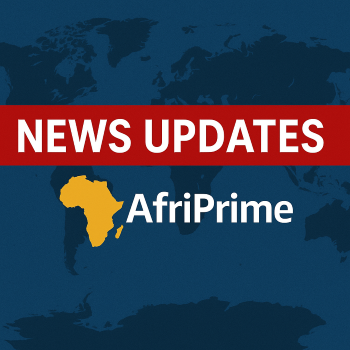Putin offers to take Iran’s uranium

Vladimir Putin first made a proposal to store Iran’s uranium earlier this year -
Vladimir Putin is willing to store uranium from Iran’s nuclear programme in Russia, the Kremlin said on Monday, adding that Moscow was ready to act as a mediator in the conflict between Israel and Iran.
On Monday, Russia said its offer to take the uranium from its ally was still on the table, having first made the proposal earlier this year.
Iran, meanwhile, warned that it was preparing to leave the Nuclear Non-Proliferation Treaty, raising fresh fears over its nuclear programme.
Israel has hit several of Tehran’s nuclear sites in recent days, in series of strikes aimed at preventing Iran from building a nuclear weapon, which Israel says would be an existential threat.
“This proposal remains on the table – it remains relevant,” said Dmitry Peskov, the Kremlin spokesman, of the offer. “But of course, with the outbreak of hostilities, the situation has become seriously complicated.”
The EU said Russia had “zero credibility” as a potential mediator in the conflict after Donald Trump, the US president, also suggested Putin could play a role.
It came as Esmaeil Baghaei, Iran’s foreign ministry spokesman, said on Monday that Tehran was opposed to developing weapons of mass destruction in a bid to quell fears that it was trying to build a nuclear bomb.
But he added that the Iranian parliament was preparing a bill to quit the disarmament treaty as fighting raged with Israel for a fourth day.
On Monday, Tehran urged Britain, France and Germany to pressure Benjamin Netanyahu to stop the attacks on Iran as Israel claimed it had achieved “aerial superiority” over Tehran.
“Germany, France and England should have very clearly condemned the Zionist regime’s crimes, especially against the Natanz nuclear facility,” said Mr Baqaei.
He added that European powers should focus on “stopping the aggression” and holding Israel “accountable” before G7 leaders met in Canada for a meeting set to be overshadowed by the crisis in the Middle East.
The White House wants Israel’s actions to be limited to degrading Iran’s nuclear weapons programme, and does not want a wider regional war.
Rafael Grossi, the chief of the International Atomic Energy Agency (IAEA), the UN’s nuclear watchdog, said there was no sign of further damage at the Natanz or Fordow nuclear enrichment sites on Monday after Israel’s latest military strikes.
There was “no indication of a physical attack” on an underground section of Iran’s Natanz uranium enrichment site following Israeli strikes that destroyed the plant’s above-ground part, he said.
“The agency is and will remain present in Iran. Safeguards inspections in Iran will continue as soon as safety conditions allow, as is required under Iran’s NPT safeguards obligations,” he said.
But he warned that the military escalation had delayed indispensable work towards a diplomatic solution to assure the international community that Iran was not trying to obtain a nuclear bomb.
Earlier, Iran had urged him to condemn Israeli attacks on nuclear sites in the Islamic Republic. It comes after Iran refused to allow the UN to inspect damaged nuclear enrichment sites in retaliation for failing to issue a stronger rebuke against Israel for its attacks.
Credit: Reuters
Iran will also no longer inform the IAEA of new, special measures to safeguard its nuclear materials and equipment, an official said.
“We will definitely not let the IAEA know about these measures as a result of the Zionist regime’s attacks,” said Kazem Gharibabadi, Iran’s deputy foreign minister, in a televised interview. “They are only measures to protect our nuclear sites and their materials.”
“It does not make sense that the IAEA remains silent while our sites are attacked, and for the agency to then expect to carry on its inspections as before, and for its inspectors to freely come and go.”
Iran’s co-operation with the IAEA was one of the rare windows that could provide insight into the extent of the Islamic Republic’s nuclear programme.
Iran’s reported push for an atomic bomb is part of a new and daunting arms race taking form, according to a new report from the Stockholm International Peace Research Institute (SIPRI).
“The era of reductions in the number of nuclear weapons in the world, which had lasted since the end of the Cold War, is coming to an end,” said Hans M Kristensen, associate senior fellow at SIPRI. “Instead, we see a clear trend of growing nuclear arsenals, sharpened nuclear rhetoric and the abandonment of arms control agreements.”
Among the total global inventory of approximately 12,241 warheads, about 9,614 are in military stockpiles for potential use, just over 3,910 were deployed with missiles and aircraft, and the rest are in storage.
While Russia and the US together possess around 90 per cent of all nuclear weapons, China’s nuclear arsenal is “growing faster than any other country’s”, the report found.
- Questions and Answers
- Opinion
- Motivational and Inspiring Story
- Technology
- Live and Let live
- Focus
- Geopolitics
- Military-Arms/Equipment
- Security
- Economy
- Beasts of Nations
- Machine Tools-The “Mother Industry”
- Art
- Causes
- Crafts
- Dance
- Drinks
- Film/Movie
- Fitness
- Food
- Games
- Gardening
- Health
- Home
- Literature
- Music
- Networking
- Other
- Party
- Religion
- Shopping
- Sports
- Theater
- Health and Wellness
- News
- Culture


